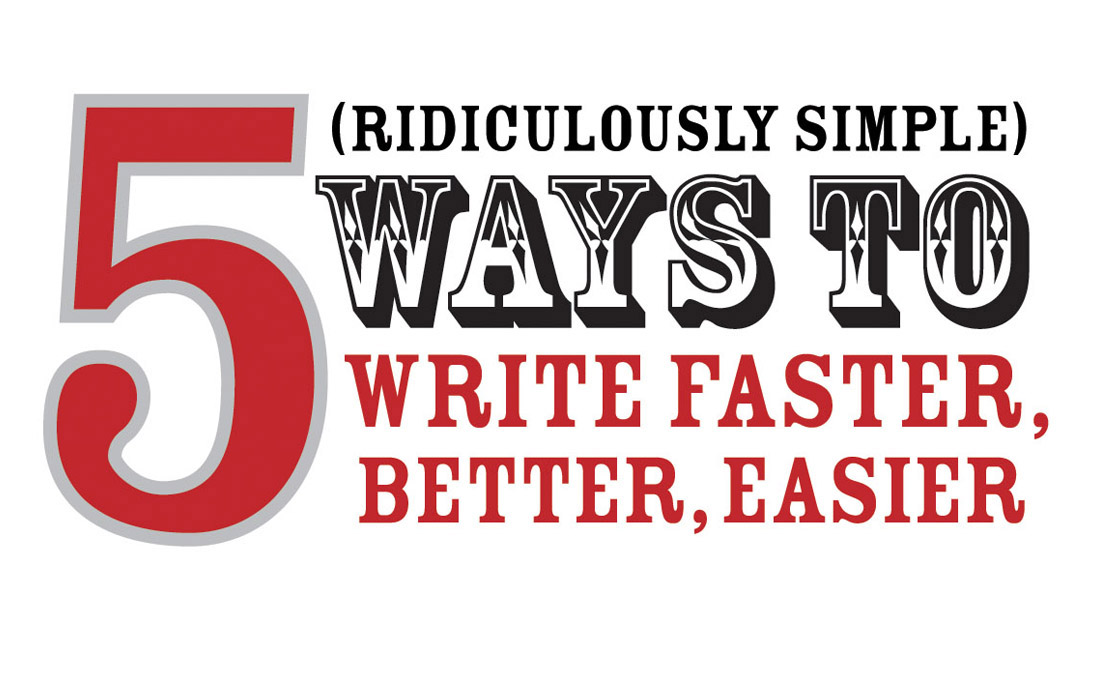Mark Levy Interview (Part 1): Crafting Compelling Messages
 Tuesday, June 8, 2010 at 09:29AM
Tuesday, June 8, 2010 at 09:29AM This is a special interview I did with Mark Levy, creative genius and extraordinary writer. Mark guest posted the popular article, "The Fascination Method." Be sure to stop by Mark Levy's blog- it's filled with wonderful tips to boost your writing and creativity levels several notches!
For those new to the world of Mark Levy, what would your tweetable bio look like?
I run the marketing strategy firm, Levy Innovation. Consultants & entrepreneurial companies hire me to increase their fees by up to 2,000%.
Mark, you have an amazing knack for crafting compelling messages. Do you have a tip you can teach our readers to strengthen their own skills?
Thanks for the kind words, Tom. I do have a tip about messaging.
When you’re writing a message, don’t try too hard making it larger than life. Focus instead on making it clear. Clarity persuades. Strip away the abstraction and hyperbole, and get to the core of what you need to say.
If you find getting to the core difficult, try a roundabout approach: Start by listing obvious facts about the situation you want to write about.
What do I mean by obvious facts? Things like who’s involved, what they want, what they’ve tried, what you propose on doing. Simple stuff like that. Stuff that’s right in front of your nose.
Just start piling up obvious facts, figures, and stories on paper. Pages and pages of them.
When you do that, you’ll relax and your big messages will likely stick their heads up without much coaxing from you.
That’s a great tip! Can you give us one more?
Sure. Here it is: If you want to figure out what to say to prospects in your sales messages, ask your clients.
After all, your clients are your clients for a reason. They’ve already said yes to your offering. Something you did or said persuaded them. Ask them about it.
Call your best clients and say, “I consider you a dream client. I’d love to do business with other people like you. Tell me, what exactly did I do right? What did I say and do that got you to ‘Yes.’ I want to understand what that was, so I can attract other dream clients.”
Listen to what they have to say, and let it inspire and guide you as you write your sales messages.

In July, you’re releasing a revised and expanded edition of your wonderful book, “Accidental Genius.” It teaches businesspeople and social media people how to freewrite. What is freewriting and why do it?
Freewriting is a fast, freestyle form of thinking onto paper that does two things for you:
On the one hand, it acts as a problem-solving and ideation tool. You can use it to think through any kind of business problem whatsoever.
On the other hand, it also acts as a tool of thought leadership. You can use the same technique to help you create one-of-a-kind books, posts, white papers, speeches, and the like.
When you’re freewriting, you’re using fast, effortless writing as a way of generating thought.
By following a few simple rules, you’re able to push your internal editor out of the way, so you can produce ideas and prose that you never would have produced any other way.
Much of what you produce, of course, will be lousy. That’s the nature of the beast. But some of what you produce will be the best stuff you’ve ever done.
I learned freewriting fifteen years ago. It’s probably the most useful thinking and productivity tool I’ve ever come across.
Thanks, Mark, for sharing your insights on messaging!
Stay tuned for part two of Mark's interview.


